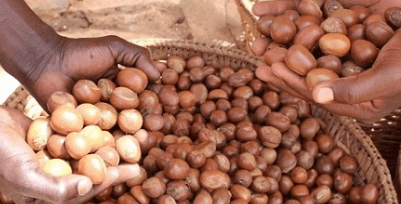Stakeholders in the domestic shea industry are raising concerns about a proposed export ban on raw shea nuts, warning it could severely impact the livelihoods of millions of rural women who depend on the sector for income.
Shea, often referred to as “women’s gold,” is a key contributor to rural household incomes across West Africa. In Ghana, women are responsible for approximately 90 percent of shea nut collection, yet they remain at the lowest end of the value chain. The crop provides critical cash income during the lean agricultural season and supports both economic and social resilience in rural communities.
Estimates suggest that the shea industry generates about US$600 million annually in community-level income across West Africa, employing roughly 4 million women. In Ghana alone, shea contributes up to 12 percent of total household income and as much as 32 percent of household cash flow during the off-season.
Ban could disadvantage rural women
If an export ban is implemented, analysts warn that the primary beneficiaries may be a small number of domestic processors. These companies—reportedly only two or three in number—could gain a dominant market position, allowing them to dictate prices at the expense of women collectors.
With the current export value of Ghana’s shea nuts estimated at US$237 million, “rural women could lose as much as US$100 million per season under the proposed ban,” one industry source indicated. “This loss would be redirected into the hands of processors who employ only 40 to 50 people in their facilities.”
Critics argue that such a ban would likely cause shea nut prices to fall, possibly by half, discouraging women from participating in collection activities. The fear of low or no market access could reduce volumes of shea kernels collected, thereby threatening supply chain stability and sustainability.
Need for holistic policy approach
Stakeholders are urging government authorities to avoid fostering monopolistic market structures and instead focus on supporting the women at the heart of the shea value chain. Recommendations include:
-
Investment in technology to allow collectors to store products and avoid distress sales.
-
Access to finance and support programmes enabling women to move up the value chain.
-
Training on quality improvement, sustainable harvesting, storage and value addition.










